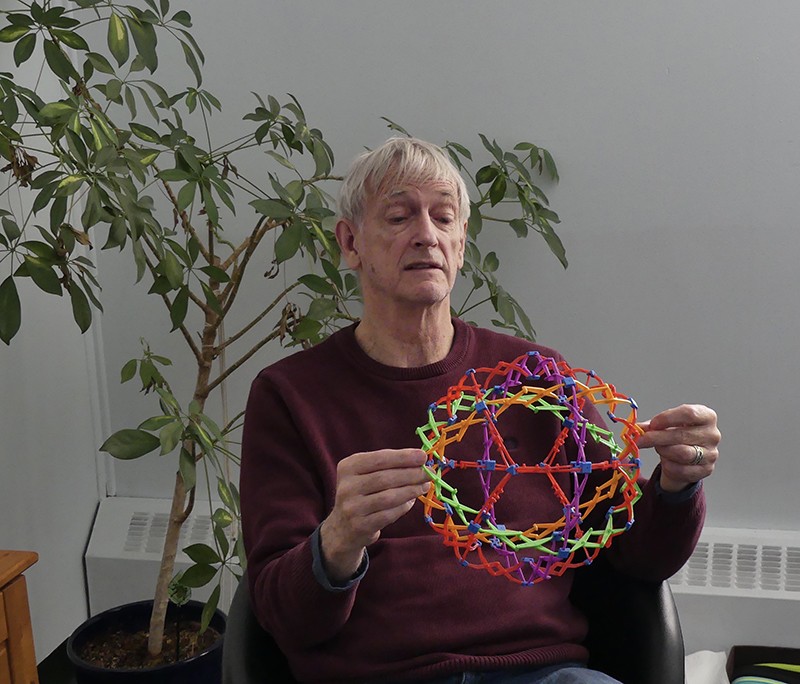Jonathan Hooton
“Why Retire When I Can Help Traumatized People Heal?”

We’ve all seen movies or read about the aftermath of war-zones, abusive families, genocide, or other violence and how every trauma leaves a scar. Even a dish shattering on the floor can shock a person back to when their life was under threat. Post-traumatic stress syndrome (PTSD) can freeze a person emotionally, fracture their relationships, and lead to drug or alcohol addiction.
We know, too, about intergenerational trauma from residential schools and other racism, for example. But most of us probably don’t realize that unresolved trauma can affect anyone, even if the trauma is three generations away.
Jonathan Hooton helps people with these issues and teaches others to do the same. He does one-on-one counselling as well as group work. Unresolved issues in a family, he says, may be avoided and denied, “but our bodies remember.”
People abused as children or whose parents, for example, survived the Holocaust, often can’t talk about it. The secret buried in their bodies disrupts their lives and their descendants’ unless they can work with it. Likewise, in the Canadian prairies a hundred years ago, settlers rarely had time to grieve the deaths of family members because they had to focus on survival. Unresolved grief like that can surface generations later as violent nightmares, suicidal thoughts, an inability to conceive a child, and mental or physical illness.
Jonathan worked with a woman who kept hearing voices say she had to kill herself. The work revealed her grandparents had survived the Holodomor, when Stalin forcibly starved millions to death in Ukraine. “Once they were honoured,” he says, “the voices stopped.”
The process Jonathan uses is “family constellations.” It has nothing to do with stars in the sky. It’s called constellations because finding patterns in a family is like looking at stars and seeing a bear (Ursus Major) or a big dipper instead of random points of light. The process engages participants as a group to explore issues, relationships, and family history in a confidential setting. Jonathan says it’s an “embodied process” where “I can represent your father or your grandfather, even your grandmother, and I will start to feel feelings she was feeling and have movements in my body that are very like hers.”
Jonathan says it’s hard to explain an embodied process to somebody who hasn’t had the experience, but “we all do it; we all have this capacity.” An Indigenous teacher learned about constellations and told Jonathan, “We know about this! This is the way we look at the world!”
Jonathan is 72 now and doesn’t see himself retiring anytime soon. He is passionate about helping people and finds the work profoundly fascinating. “We’re all mysteries,” he says. “I never know what’s going to happen.
Jonathan has lived in McCauley for 21 years, in the house he shares with his wife, Martha Brooks. The house is old style and has as much character as the neighbourhood: high ceilings on the main floor, a balcony at the back, and in the front, Caboto Park, which the laughter of children playing brings to life in the summer.
For more information about Jonathan’s work, visit soul-guide.com
Gary lives in McCauley.


